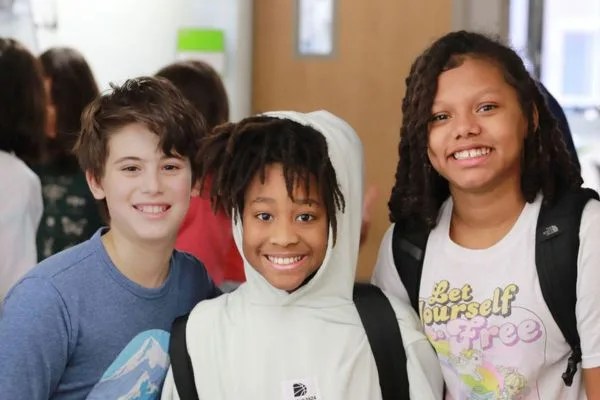
Are you thinking of sending your child with special needs to overnight camp? When choosing a camp, there are many considerations that have to be made, and for parents of a special needs child, there are things to think about that go beyond the usual camp search. Not every camp, whether special needs or mainstream, is set up to address the specific needs of each child, so you want to make sure you do your research. Families may want to consider the following when researching a camp for their child.
Mainstream or special needs: Not sure if your child should be at a special needs camp or at a mainstream camp? “A good determination is to consider your child’s school,” says Mike Kunin, director of Camp Ramapo for Children in Rhinebeck, NY, an overnight camp that serves children who are affected by social, emotional, or learning challenges. “How many children and staff are in the class? If during the year, your child is with six children and three staff members, a special needs camp is the right fit. If your child is in a class with 25 children and one teacher, you should look into a mainstream summer camp program.” When speaking with the leadership team of a mainstream camp, ask if they have other special needs campers, how they work with a child’s behaviors, and how they work inclusion—does the camper always go with the group or does he or she get pulled out sometimes?
Be open about your child’s needs: Describe your child to the camp director, especially on his or her worst day. You want to feel the camp director is able to completely assess if your child’s needs are going to be best met at the camp. Alex Mellor, director of Camp Huntington, a special needs overnight camp for children with learning and developmental disabilities in High Falls, NY, adds: “The camper, parent, and camp director will all have the most successful summer if parents are open about their child’s needs and the camp is honest about the type of child they can handle.”
Skills you would like your child to gain: Take the time to think about what you would like your child to gain from the camp experience and ask the camp director if and how these goals will be met. Are you looking for your child to have just a recreational summer or to work on specific goals such as coming home more independent? Are improving social skills and life skills important for you? “We have campers work on things like making their beds, working in the garden, making a salad, and setting a table. They are doing everyday skills in a different environment, Mellor says. “Our aim is for children to leave camp slightly more independent then when they arrive.” Kunin says sending your special needs child to camp is so important. “All children will be adults one day regardless of their functional level. Waiting until a child is 16-18 to find independence experiences for them isn’t beneficial. Even if a family’s plan is to have their child live with them forever, he or she will eventually need to be independent of you, so you have to treat the camp experience as more important for a child with special needs then your mainstream child.” Michael Rose, director of Camp Anne, an overnight camp for children and adults who function in a range of disabilities, adds that many of his camp families say their child has difficulty making friends. “We work socialization into the camp experience and if we see children getting along well at camp and live in the same neighborhood, we put the parents in contact with each other so the children can play together when camp is over.”
[gravityform id=”17″ title=”false” description=”false” ajax=”true”]
Meet the camp leadership: Once you have narrowed down your camp choices, you want to make sure the camp director/leadership team is interested in meeting your child, whether in person or over Skype. “We have open house dates with a tour each spring for new families. I meet with each family individually for as long as they want,” Kunin says. “This gives me a chance to observe a child being who they are and gives the parents the opportunity to ask how the camp would handle the behaviors that are occurring at that moment in person.” Mellor adds: “If a camp says they accept everyone and doesn’t feel the need to meet your child or obtain information from your child’s school, then this will most likely not be the right fit. You want to feel that the camp director has the whole picture about your child’s needs before saying they can accommodate him or her.”
Staffing: One of the most important considerations is to inquire about who is caring for your child. Ask about the age of the staff, background checks, their training with special needs children, training on different diagnoses, and how to deal with those behaviors. “Most importantly, parents want to know that the staff has a compassionate outlook and that they are at camp because they want to work with special needs campers,” Rose says.
Ratios: Ask about what the ratio of staff to children is, while at activities and also how many of the staff are in the bunk with the campers. It is very helpful to compare home and school life to what camp life should be for your child.
Medical personnel: Ask questions about the medical personnel at camp and what would be important for your child’s needs. “Find out how many nurses are on staff, what the health center is equipped to handle, if a doctor comes into camp, if the camp can deal with trachs and feeding tubes, does the camp accommodate children that are medically fragile and if there are night nurses,” Rose says. Parents also want to inquire about what connection the camp has with the local hospital, how medication is distributed and if nurses can individualize and make accommodations as needed for campers such as dispense medicine in a certain way or keep a seizure log.
Safety: Parents want to ask about safety procedures and how the camp handles certain situations. “Safety is often a top consideration for parents. We bring parents in at the start of summer and we show them around camp. We take them to activities such as the pool, which isn’t so straight forward if you have a child with a disability,” Rose says. “We have 1:1 care in the pool, campers always wear life jackets and life guards are aware of all the medical conditions of children in the pool. Other safety aspects at camp include a fence around our 47 acres for campers who may wander off, alarmed doors in the cabins, and a night watch security guard. Safety at camp is our number one priority, but number two is that we want to give children a camp experience that is as normal as possible with sports, swimming, and campfires.”
Grouping/Bunking: Parents will want to ask about how the children are grouped and bunked. Do they group by age or functional level? How is it determined who is together? How many children are in a bunk? “Asking about functional levels is important, especially for parents whose children are at the lowest or at the highest functioning. You want the peer group to be appropriate. Parents don’t want their child to look around and feel that they are the highest functioning child in the group,” Kunin says.
Communication: Be sure to ask about communication policies and how you will be updated on your child’s well-being and progress throughout the summer. Are there weekly phone calls? How does the camp handle communication if your child is non-verbal? Camp Ramapo does phone calls with parents midway through a camp session. Kunin adds: “We coach parents to make a child centered decision regarding communication and say ‘If you feel your child will benefit or be neutral speaking with you, do the phone call. If you feel it might set them back, then just call the staff.’” Mellor says: “We do weekly phone calls between campers and parents. If a child is non-verbal, we do Facetime or Skype so they can see each other. Parents also receive a weekly email updating them on how their child is doing.”
References: One of the best ways to find out about a camp’s reputation is to ask for references. Speak with a parent whose child has similar needs to yours and attends the camp. This conversation will give you good insight into the camp and how the camp handles children with comparable needs.






















